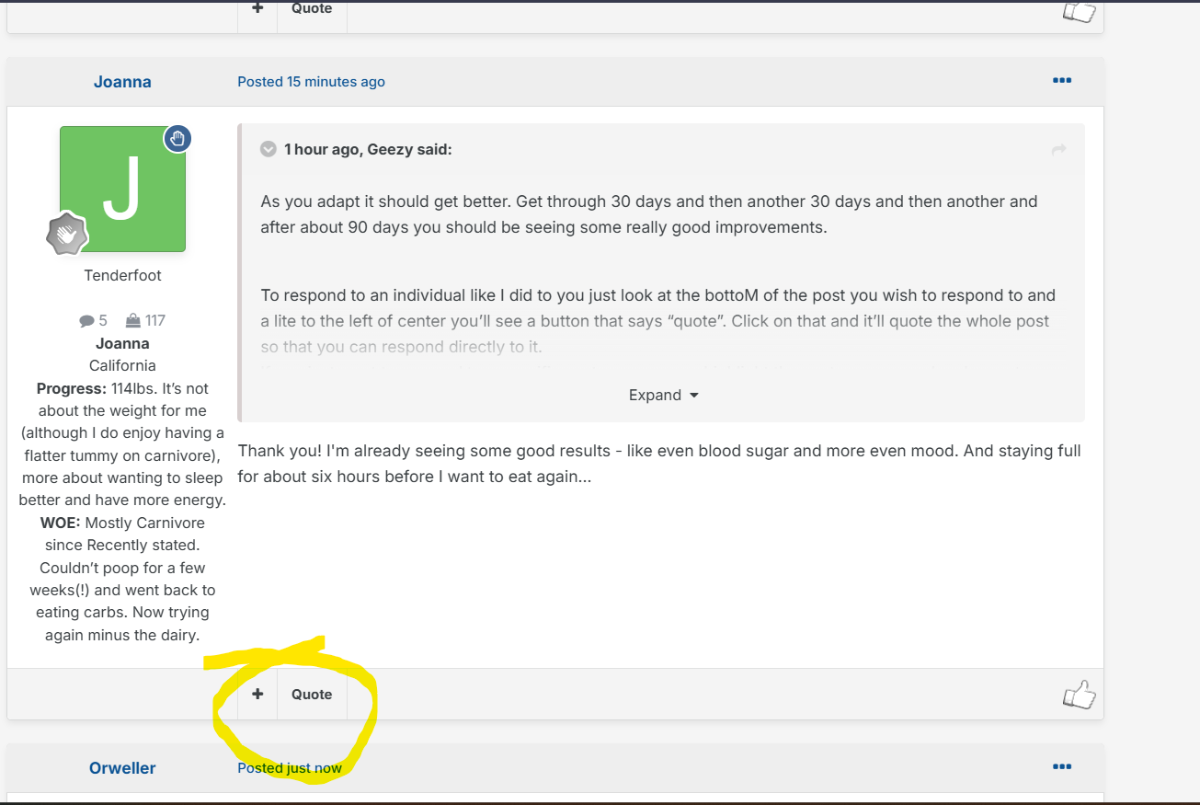Today is the first day of January and is also the first day of World Carnivore Month. To that end, let's challenge ourselves to eat a carnivore diet for the entire month of January. The type of carnivore diet and the level of strictness you choose to do is entirely up to you. Examples of carnivore diets include the following...
1) The Lion Diet. A person eating the Lion Diet only consumes the flesh of ruminant animals, water, and salt.
2) The BBBE Diet. BBBE is an acronym for Beef, Butter, Bacon, and Eggs.
3) The Carnivore Diet. This allows for the consumption of any and all animals and animal by-products, including dairy.
In any of the above examples, the object of course is to not consume any plants as part of your diet. Of course, we're not going to micromanage hoe you prepare your food, so your use of seasonings is entirely your own personal choice.
IF your circumstances don't allow you to go full on carnivore in January, then you can participate in this topic by challenge yourself to do better, above and beyond what you have been doing. For example, if you have still been eating grains, seed oils, refined sugar, or drinking alcohol, challenge yourself to avoid these items and just eat a clean, single ingredient whole foods diet such as clean keto, ketovore, or animal based.
We encourage you to check in daily, and share what you have eaten, perhaps a weigh-in if you're willing, and enjoy in some small talk. Participants in this topic will be entered into a drawing for a prize at the end of the month.









comment_13035I'm absolutely amazed at how critical a role insulin plays in our health and how many medical conditions evolve when things go wrong.
"Hence, a reproductive and survival advantage appears to exist in individuals with a greater degree of insulin resistance on a low-carbohydrate diet. This inherited insulin resistance may involve different genes/enzymes than dietary-induced insulin resistance. Insulin-sensitive subjects seem to find a low-carbohydrate, high-protein diet difficult to tolerate, with side effects such as nausea and headache [32, 33]. On the other hand, insulin resistant subjects [34, 35] and genetically obese animals [36] appear to tolerate a high-protein diet very well. Studies have shown high-protein diets produce the most desirable metabolic profile in individuals with type 2 diabetes [37–39"
https://pmc.ncbi.nlm.nih.gov/articles/PMC3253466/
Edited by Copper
Spelling